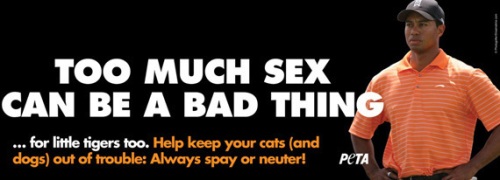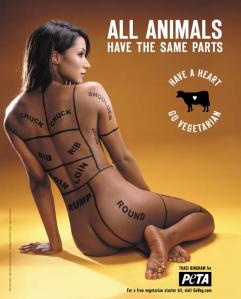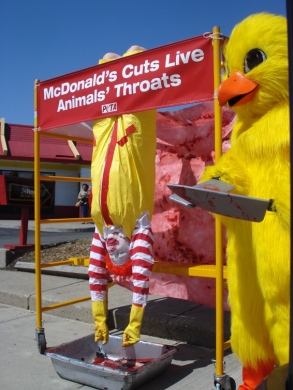Dear Mr. Rodman:
In a few brief blogs I have tried to outline my objections to PETA and its tactics. Frankly, I am ambivalent about PETA. There is much to respect in some of your accomplishments and much that dishonors your organization and its mission. I initially intended to keep the blog light and dispassionate; my execution fell well short of those intentions. My passions often got the better of me.
The blogs contain harsh words – hypocrisy, exploitation, objectification – but I believe their use is warranted by your organization’s tactics. I also have charged that PETA often seems more concerned with the concept of animal rights than with actual animals, and that your organization often appears to be more concerned with its continued prominence than with its actual mission. I believe these are issues worthy of your thoughtful consideration. Self-analysis is critical to sustaining a vibrant and focused organization.
I outlined the specific changes PETA should make in my first blog and discussed those changes throughout the blog. They concern openness about the real world implications of your animal rights philosophy, ending the practice of euthanizing animals (killing a healthy animal is not a compassionate act, no matter how its justified), and stopping campaigns that objectify women or exploit the suffering of other humans. I would like to see these things accomplished immediately, but that might be too much to swallow in one bite. I, therefore, offer a more modest proposal.
PETA leadership should create an ethical code of conduct to guide its activities. Most organizations have them, whether they adhere to them or not is another question. Such a code should reflect an ethical sensitivity to other groups, a commitment to honest, non-manipulative communication, a pledge to protect animal life, not just animal rights, and a commitment to non-violence. One commitment I’m not suggesting is to obey the law. Civil disobedience has a grand history in this country and it’s something in today’s climate that we need more, not less, of.
I recognize how difficult social change is, but moral persuasion is the surest route of accomplishing positive change. People will pay attention to animal suffering. It’s your strongest card. Play it without alienating the people who will have to make the change you seek. You clearly have a creative organization. Stretch your imaginations and quit relying on tactics that offend those who could tomorrow be your strongest allies.
Respectfully,
Rin Blair







